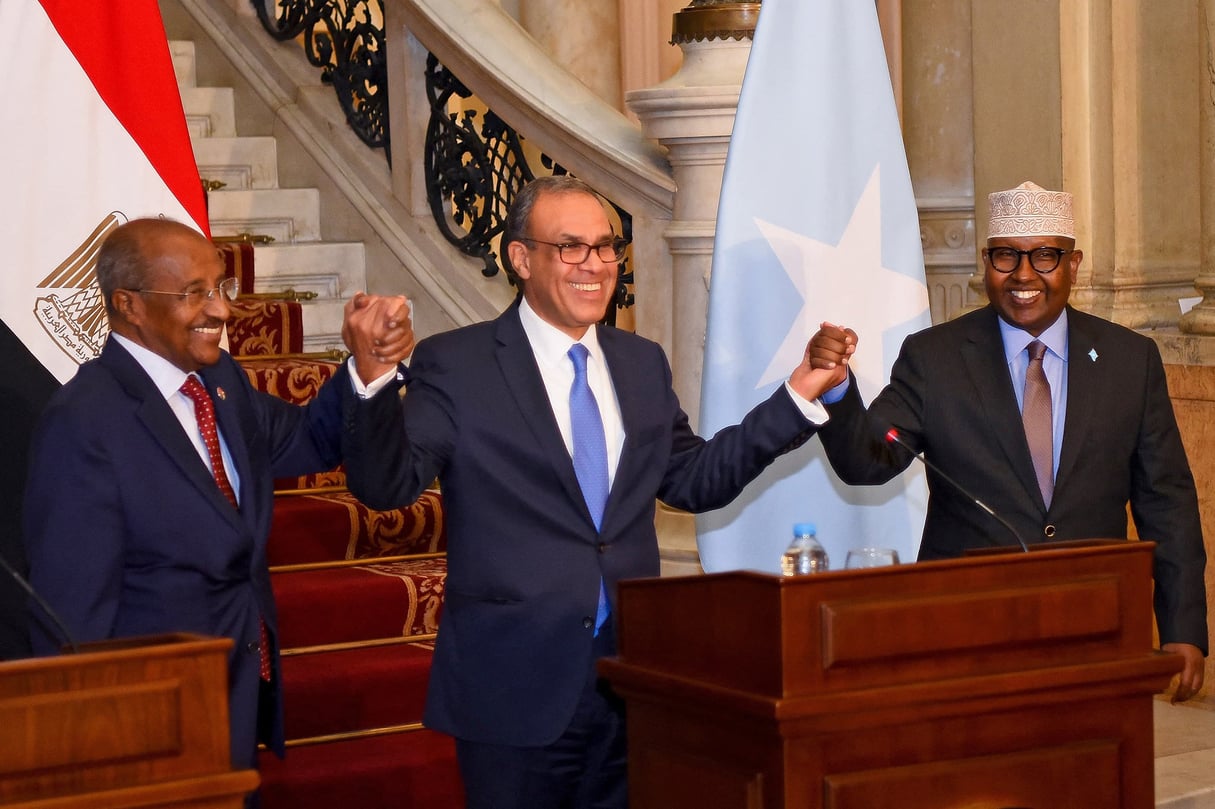Date: Thursday, 13 November 2025
Attacks by Shebab and Houthis in the Red Sea, war in Sudan, ambitions of Ethiopia… In the midst of a turbulent environment, Egypt is taking initiatives to restore the strategic balance and development of the region, explains Badr Abdelatty, its Minister of Foreign Affairs.

Egypt 's diplomatic and military initiatives in the Horn of Africa over the past two years have attracted the attention of observers, particularly those concerned about the impact of regional developments on freedom of navigation and international trade in the Red Sea. These concerns arise amid reports of increasing coordination between the Al-Shabaab terrorist group in Somalia and the Houthi group in Yemen, a coordination that heightens threats to regional security.
Egypt's connection to Africa dates back to antiquity. Since the time of Queen Hatshepsut, trade and cultural ties have steadily strengthened, through periods of colonization and Egypt's support for independence movements. From Somalia to Djibouti and Eritrea, our relationships with the peoples and governments of the Horn of Africa have left a lasting mark, including on the new generation.
The factors of fragility are not limited to Somalia. From the war between Eritrea and Ethiopia to the Ethiopian civil war in Tigray, the region is continually tested by the propensity of of its parts to export their instability and fuel hostilities born from their hegemonic tendencies.
The most recent of these destabilizing projects lies in Ethiopia's illegitimate—and publicly acknowledged—attempts to establish a naval military presence on the Red Sea coast, despite its landlocked status. This constitutes a blatant threat to the territorial integrity and sovereignty of the region's states.
Finally, the Houthi attacks on freedom of navigation in the Red Sea, following the Israeli aggression in the Gaza Strip, have led to increasing militarization of this area and revived old draft agreements aimed at securing this maritime route by involving non-coastal regional actors. This could rekindle the temptation to reshape the geopolitical realities of the Horn of Africa.
Egypt is therefore facing a turbulent environment and various threats to its national security. Passive observation or traditional diplomacy are no longer a luxury it can afford. Moreover, the countries of the region are aware that its renewed diplomatic activity is an urgent necessity if aggressive behavior is to be discouraged .
For their part, Egyptian state institutions and bodies know that they must act along parallel and complementary lines to restore a degree of strategic balance. The most obvious illustration of this new approach is Egypt's positive response to Mogadishu's request to contribute to the African Union Mission in Somalia (AUSOM) by sending military and police forces, as well as an air component. This marks Egypt's first participation in an African Union peacekeeping operation some thirty years after its involvement in the United Nations peacekeeping mission in Somalia. Egypt thus intends to reaffirm its role and assume its responsibilities in the Horn of Africa.
It has also revitalized its economic and cultural relations, and strengthened its technical support to Djibouti, Eritrea, Kenya and Somalia in key sectors such as energy, infrastructure and education.
The Horn of Africa has all the necessary resources to ensure its stability and development. However, it needs a partner willing to transfer its expertise to contribute to the (re)construction of certain states, while ensuring that the interests of the people are taken into account and prioritized.
As President Abdel Fattah al-Sisi announced , Egypt will mobilize all its diplomatic instruments to restore stability and establish multidimensional partnerships in the Horn of Africa. It is therefore confidently preparing to take center stage in this part of the world.